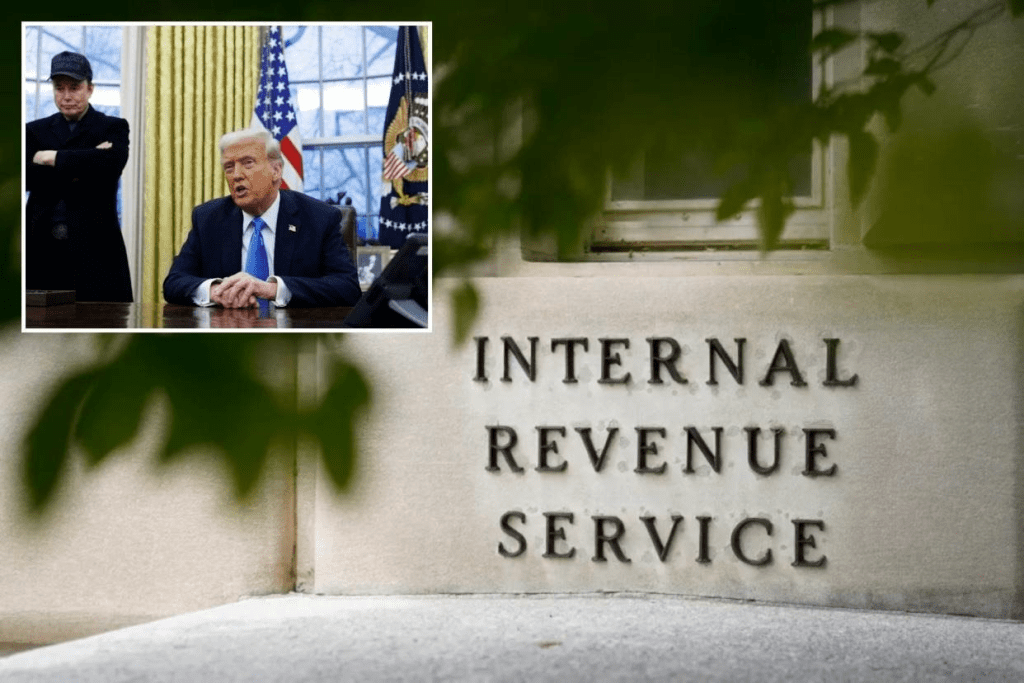
Trump and Elon Musk Collaborate to Lay Off 7,000 IRS Employees Amid Peak Tax Season
In a controversial move, President Donald Trump and Elon Musk, head of the Department of Government Efficiency (DOGE), have initiated the termination of approximately 7,000 employees at the Internal Revenue Service (IRS) during the critical tax-filing period. This decision is part of a broader strategy to reduce the federal workforce and streamline government operations.

Targeting Probationary Employees
The layoffs primarily affect probationary employees—those with less than one to two years of service—who lack full job protections. Critics argue that reducing staff during peak tax season could lead to delays in processing returns, diminished customer service, and weakened enforcement capabilities. The IRS’s capacity to effectively manage tax collection and compliance may be compromised as a result.

Broader Federal Workforce Reduction
This action aligns with the Trump administration’s ongoing efforts to downsize various federal agencies. Recent reports indicate that nearly 10,000 workers across departments such as Interior, Energy, Veterans Affairs, Agriculture, and Health and Human Services have been terminated. These measures are part of a larger initiative led by Musk to cut costs and enhance efficiency within the federal government.

Controversial Management Tactics
Elon Musk has implemented unconventional management strategies, including an email directive requiring federal employees to justify their weekly work contributions. Non-compliance with this directive has been met with threats of termination. This approach has sparked confusion and resistance among federal workers, leading to legal challenges and public outcry.

Legal and Political Ramifications
The mass layoffs have prompted legal challenges from labor unions and federal employee associations. A federal judge recently ruled in favor of the administration, allowing the continuation of these terminations as legal proceedings continue. This decision has intensified debates over the administration’s authority to unilaterally reduce the federal workforce and the potential long-term impacts on public services.
Implications for Public Services
The reduction in IRS staff during the busiest time of the year raises concerns about the agency’s ability to fulfill its mission effectively. Taxpayers may experience longer wait times, delayed refunds, and decreased assistance, potentially undermining public trust in the tax system. As the administration continues its efforts to reshape the federal workforce, the full impact on government services and operations remains to be seen.



